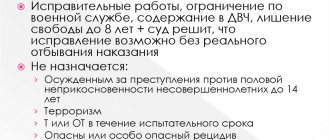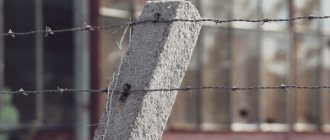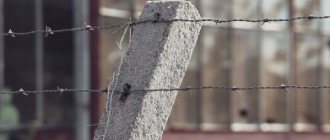The case of journalist Ivan Golunov has drawn attention to the work of law enforcement agencies and the judicial system in combating drug trafficking. Kommersant studied in detail the main anti-drug article of the Criminal Code - 228: what it is about and how it is applied in practice.
- Article 228 provides for punishment for the illegal acquisition, storage, transportation, manufacture, processing of narcotic drugs, psychotropic substances or their analogues, as well as plants or their parts containing these substances (hereinafter referred to as narcotic drugs).
- Article 228.1 (Ivan Golunov was charged with it) - for the production, sale or transfer of narcotic drugs.
- Article 228.2 - for violating the rules of drug trafficking.
- Article 228.3 and 228.4 - for the illegal acquisition, storage, transportation, production, sale or transfer of drug precursors (that is, substances used to manufacture drugs).
In addition to Article 228 with all its parts, penalties related to drug trafficking are contained in Articles 229–233 of the Criminal Code. The Code of Administrative Offenses also provides for administrative penalties for drug-related crimes. In particular, illicit trafficking in narcotic and psychotropic substances (Article 6.8 of the Administrative Code), propaganda of narcotic drugs (6.13), consumption in public places (20.20).
What punishment does violators face?
For the acquisition, storage, and manufacture of narcotic drugs without the purpose of sale (Article 228), the following punishment is provided (depending on the size of the seized substances):
| Deprivation of liberty | Additionally | |
| To a significant extent | up to 3 years* | fine up to 40 thousand rubles, compulsory / corrective labor, restriction of freedom up to 3 years |
| Large size | from 3 to 10 years | fine up to 500 thousand rubles, restriction of freedom up to 1 year |
| In a particularly large size | from 10 to 15 years | fine up to 500 thousand rubles, restriction of freedom up to 1.5 years |
*in this case, imprisonment is not mandatory, but only one of the possible punishments
For the illegal production and sale of drugs (Article 228.1), the Criminal Code of the Russian Federation provides for imprisonment for up to 20 years, in exceptional cases up to life imprisonment.
| What is the sentence for violators under Art. 228.1 | Deprivation of liberty |
| Without aggravating circumstances | from 4 to 8 years |
| Sales in pre-trial detention centers, administrative buildings, sports, educational and transport facilities, through the media and the Internet | from 5 to 12 years |
| By a group of persons by prior conspiracy, in a significant amount | from 8 to 15 years |
| By an organized group, on a large scale, using official position, to a minor | from 10 to 20 years |
| In a particularly large size | from 15 to 20 years, for life |
Additionally, it is possible to impose a fine of up to 1 million rubles, restriction of freedom, deprivation of the right to hold certain positions or engage in certain activities.
The Criminal Code provides for exemption from criminal liability for the illegal acquisition, storage, transportation, manufacture and processing of drugs or precursors for persons who voluntarily surrendered these substances and actively contributed to the disclosure or suppression of crimes related to drug trafficking, the exposure of those who committed them, and the detection property obtained by criminal means. Illegal production and sale of narcotic substances or precursors (Articles 228.1 and 228.4) do not provide for exemption from liability.
Our client was charged under Part 1 of Art. 228.1 of the Criminal Code of the Russian Federation
It all started a year ago, when a case appeared in our proceedings on charges of committing a crime under Part 1 of Art. 228.1 of the Criminal Code of the Russian Federation, which constitutes the illegal sale of marijuana (this act is punishable by imprisonment for a term of 4 to 8 years). This is exactly the kind of punishment that could be imposed on our client, and this is what frightened us when choosing a defense position! The gloom of the situation was also enhanced by the fact that the principal was chosen as a preventive measure in the form of detention; he was immediately placed in a pre-trial detention center after the incident.
It was decided to turn to the classic scheme - to tell the truth, it was the truth that turned out to be the main weapon in the fight for a fair punishment not associated with imprisonment, the task was only to collect the whole truth and not forget to show all its facets...
The principal fully admitted his guilt in committing the criminal act charged to him; during the time he spent in custody, he did not change his grateful position, sincerely repented of his deeds, citing that he knew the gloominess of the atmosphere of being in prison, the society surrounding him, the tragedy of the situation and their future fate, unrealized ideas, plans and dreams that can collapse overnight.
When giving explanations and during interrogation, it was decided to give complete, reliable, confessional testimony both on the circumstances of the crime committed and the actions preceding it. While in custody, my client fully realized all the harm that drugs cause not only to health from their use, but also what happens when you try to enter into a relationship in the sales of a prohibited substance.
After our client was released on cash bail (separate work was carried out to substantiate the request to change the preventive measure by the lawyers of our legal education), our client rebuilt his life, took up new projects that generate profit, began to solve everyday family issues and participate in the life of society on the principle of making one’s contribution to its development. During his release, there were no complaints against him either from the investigation for violating appearances at investigative activities, or from law enforcement agencies in general; he was not noticed in committing new offenses entailing civil, criminal or administrative liability, which indicated that the person you can believe and not apply a prison sentence against him.
How is the size of drugs determined?
Significant, large and especially large sizes of narcotic substances and plants containing narcotic substances are approved by government decree No. 1002 of October 1, 2012.
For example, N-methylephedron and its derivatives, the sale of which Ivan Golunov was accused of selling, in large quantities corresponds to more than 1 g of the substance.
Determination of the size of illegal drugs during criminal prosecution (grams over)
| Significant | Large | Extra large | |
| Cocaine | 0,5 | 5 | 1500 |
| Heroin | 0,5 | 2,5 | 1000 |
| Amphetamine and its derivatives | 0,2 | 1 | 200 |
| Methamphetamine | 0,3 | 2,5 | 500 |
| Hashish (anasha, cannabis resin) | 2 | 25 | 10 000 |
| Cannabis (marijuana) | 6 | 100 | 100 000 |
| Cactus containing mescaline | 50 | 250 | 25 000 |
| Coca bush (plant of the genus Erythroxylon) | 20 | 250 | 20 000 |
| Hemp (plant of the genus Cannabis) | 6 | 100 | 100 000 |
According to a study by the Institute for Law Enforcement Problems, “Map of Drug Crimes in the Russian Federation,” as of 2014, the most frequently seized drugs by law enforcement are cannabinoids, heroin and amphetamines.
What do judicial statistics say?
According to the Judicial Department of the Supreme Court of the Russian Federation, every seventh sentence in the Russian Federation is passed under Article 228 . Thus, in 2021, 658.3 thousand people were convicted under all elements of the Criminal Code of the Russian Federation, of which Article 228 with all its parts accounted for 13.4% of all sentences. For comparison: a year earlier the share was 14.3% (total number of convicts - 697 thousand), in 2014 - 15.2% (out of 719.3 thousand). If we take all drug-related charges, then a quarter of all prisoners are imprisoned under them.
The most widespread is Article 228 (acquisition and possession without the purpose of distribution), which in 2021 accounted for 79% of all sentences (69.6 thousand). Drug sales (228.1) account for 21% of convictions.
The majority of those convicted are young people (age group from 18 to 29 years).
The most common sentence for drug-related crimes is imprisonment for 3-5 years. At the same time, only 0.3% of criminal cases are released from punishment .
Art. 72.1 of the Criminal Code of the Russian Federation gives the court the opportunity to oblige the convicted person to undergo drug addiction treatment (if the main punishment is not related to imprisonment). In Art. 82.1 provides for the opportunity for a person sentenced to a real term to voluntarily undergo treatment for drug addiction with a deferred sentence.
Everything about criminal cases
Go to materials in the field of drug trafficking
Conditional sentence under Article 228 of the Criminal Code
| Normative base - paragraph 35 Plenum No. 14 possibility of a suspended sentence for drug offenses - P. Plenum No. 1 prohibition of suspended sentences for serious offenses Is a suspended sentence possible under Article 228 of the Criminal Code? ? Possibility of conditional punishment under Article Case No. 01-0782/2016 Example — suspended sentence (only due to mitigating circumstances) under Petition for special order Example - filing a petition for a special procedure is taken into account as a mitigating circumstance |
Possibility of conditional punishment under Article 228
The difficulty of a suspended sentence under this article is that, in addition to the first part, it is a serious
compound.
And in this category of cases, a suspended sentence is not often applied (see more: For serious offenses,
it is difficult to assign a suspended sentence).
| Part | punishment | severity category | possibility of probation |
| Part 1 228 of the Criminal Code | 3 years | small gravity | high probability |
| Part 2 228 of the Criminal Code | 3 – 10 years | serious crime | low probability |
| Part 3 228 Criminal Code | 10 - 15 years | especially serious | impossible (almost) |
I). For the first part, a suspended sentence is possible
Conditional sentence under Part 1 228 of the Criminal Code
quite achievable.
But the lawyer needs to remember that despite the soft category of this composition, the general rule of Article 56 of the Criminal Code
(that one cannot be sentenced to imprisonment for crimes
of minor
gravity) does not apply to him and a special instruction is made, namely, it says that under this article a real sentence is possible (despite the category of minor severity, even in the absence of
aggravating
circumstances and even when committing a crime for the first time.
II). For the second part, a suspended sentence is difficult
2)
a suspended sentence under
Part 2 228 of the Criminal Code
, but it is quite possible, and it is not always possible to do it right away.
III). According to the third part, a suspended sentence is impossible
3)
A suspended sentence under
Part 3 of 228 of the Criminal Code
is unrealistic.
The thing is. that the third part of Article 228 has a special role. It is clearly intended for drug dealers. Particularly large sizes are usually extremely impressive volumes (judge for yourself: 1 kg of heroin or 100 kg of marijuana clearly indicates that they were NOT intended for personal use). It is clear to the investigation and the court that there was clearly an intent to sell ( 228.1 of the Criminal Code)
. But they DO NOT want to condemn a person for selling (either there is no evidence, or he “bargained” for himself this indulgence). That's when the third part of 228 applies.
(see more details: For especially serious
assignment of a suspended sentence to the composition is almost impossible).
Case No. 01-0782/2016
A suspended sentence was imposed under the second part of Article 228 of the Criminal Code.
| Which defense technique worked in this case: The matter is simple, since the position in the case was based on an admission of guilt. What led to the suspended sentence? A) there was a set of usual mitigating circumstances: the presence of diseases, dependent persons. Fact of filing petitions for a special procedure may be mitigating b) We also managed to obtain another specific mitigating circumstance: a request for a special order. |
Verdict (extraction)
case No. 01-0782/2016
The Preobrazhensky District Court of Moscow examined in open court a criminal case on charges of committing a crime under Part 2 228 of the Criminal Code
,
with the participation of the state prosecutor, the defendant's defense lawyer A.A. Melchaev.
,
u st a n o v i l:
The defendant illegally, without the purpose of sale, acquired and stored narcotic drugs on a large scale. The defendant committed the crime under the following circumstances: realizing the criminal nature and social danger of his actions, he purchased a narcotic drug, a mixture (drug) containing large amounts of narcotic drugs.
The court qualifies the actions of the defendant under Part 2 228 of the Criminal Code
as illegal acquisition and storage without the purpose of selling narcotic drugs in a significant amount.
When determining the type and measure of punishment for the defendant, the court takes into account:
Url Additional information:
Health status recording
Health of the culprit
, accounting during punishment (
clause 28
of Plenum No. 58)
— the presence of a number of diseases in the defendant;
Url Additional information:
Registration of dependent persons
Dependents of the convicted person
(except for children), accounting for punishment (
clause 28
of Plenum No. 58)
- illness of the defendant’s wife, who is his dependent;
Url Additional information:
Mitigating circumstance
Fact of filing
petitions for a special procedure may be mitigating
- the fact that he filed an application for the application of a special judicial procedure.
(Comment: the case was considered in a general manner, but the court took into account the defendant’s intention to consider the case in a special procedure. For more information on the use of the fact of an application for consideration of the case in a special procedure, see here: Fact of filing
petitions for a special order may be mitigating.
It should be taken into account that the opportunity to submit such a petition exists only for Part 1 228 of the Criminal Code
, so it is light in weight.
But according to Part 2 228 of the Criminal Code
(serious crime) after changes to the law dated
August 31, 2020.
- the special procedure no longer applies).
Url Additional information:
Taking into account marital status
Impact of punishment
for the family of the convicted person: taken into account in the sentence (
Part 3 60 of the Criminal Code
)
- the difficult financial situation of the defendant’s family, who is the sole breadwinner.
In such circumstances, the court finds it possible to apply rules 73 of the Criminal Code.
Based on the above and in accordance with the Code of Criminal Procedure, the court,
sentenced:
The defendant was found guilty of committing a crime under Part 2 228 of the Criminal Code
and sentence him to imprisonment for a period of 3 years.
In accordance with Article 73 of the Criminal Code
consider the punishment suspended with a probationary period of 3 years.
Return to materials on drug trafficking
Seek advice
Features of law enforcement
The 2021 report by the Institute for Law Enforcement Problems, “Drug Crimes in Russia: Analysis of Judicial and Criminal Statistics,” notes that consumers in Russia are persecuted more often than distributors . The authors identified “artificial distortion of the masses of seized drugs by law enforcement agencies.” “The quantities of marijuana and hashish most often seized from drug users are just sufficient to qualify the offense as a criminal offense, and these quantities do not significantly exceed the significant amount required to initiate a criminal case,” the report says.
Alexey Knorre, “Drug crimes in Russia: analysis of judicial and criminal statistics”
Researchers call a separate problem the fact that “law enforcement officers understand a drug not as a pure narcotic substance found in a mixture, but as the entire mixture.
According to Alexei Knorre, an expert at the Institute of Law Enforcement Problems of the European University, there are no official statistics on bringing law enforcement officers to justice for falsifying drug cases. However, content analysis of the media over the past 5 years has revealed approximately 500 cases in which a law enforcement officer was detained, arrested, or convicted of drug-related fraud.







